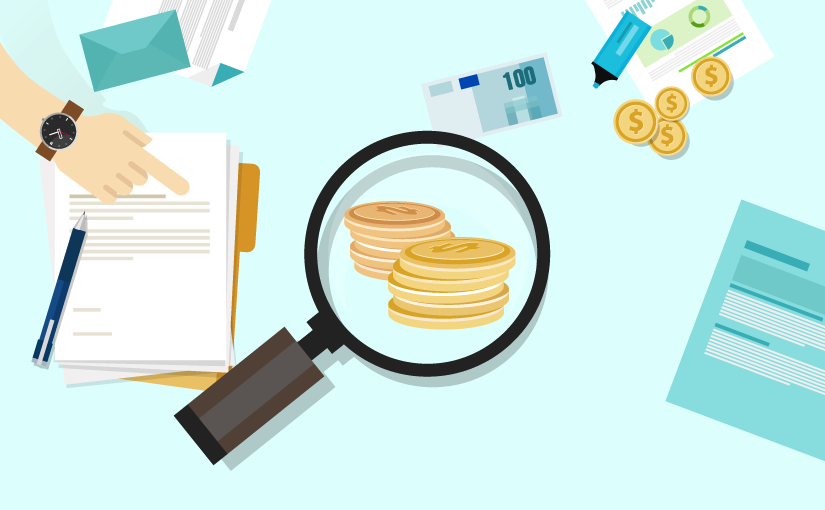Being an investor at this point doesn’t just mean navigating a complex maze of investment options across different platforms and territories – it also involves a great deal of due diligence to make sure your risks are managed from a return on investment point of view and a legislative standpoint.
Countries around the world, and in particular the European Union, have stepped up Anti-Money Laundering (AML) legislation to ensure that financial crimes do not disrupt its financial stability and reputation for safety.
In this post, we’ll look at AML and how this also affects peer-to-peer (P2P) lending. The overall aim is to give an insight into the importance of Anti-Money Laundering initiatives and legislation and to ensure that you have a good idea of who to consult if help is needed.
What Is Money Laundering and Why Are There Laws Preventing It?
In short, money laundering involves a person or entity making money derived from illegal activities, yet making it seem like it came from a legal and legitimate source. This is often the case when money was stolen, earned selling illegal merchandise, or by trying to avoid paying taxes.
Gan Integrity gives a nice definition by explaining that money laundering is “the method in which illegally obtained money is altered to make the translation look legitimate” and that it “occurs when the location, source, ownership, or control of funds are falsified.”
How Does This Affect Traditional and P2P Lending Financial Institutions?
Money laundering affects the banking sector and P2P lending platforms as it might use the infrastructure of the bank or P2P lender to store the money and then hide it by masking it behind various transactions.
Once the money has moved around enough (via the bank or P2P platform) by means of various transactions, the money is then moved back to the original criminal source. This then enables the criminal element to now use the funds for any purpose “legitimately.”
This type of money laundering further supports other illicit activities like the drug trade, illegal firearms, terrorism, human trafficking, and tax evasion. It is therefore important for investors, banks, and P2P lending platforms to implement safeguards to identify and act if money laundering is detected.
European P2P Lenders: Latest Safeguards to Prevent Money Laundering
Introducing Crowdfunding Legislation to Protect Both Lenders and Investors
The European Capital Markets Union (ECMU) which forms part of the European Council, has taken heed of the United Kingdom’s Crowdfunding legislation with regards to anti-money laundering regulations for all transactions.
According to Peer2Peer Finance News, the legislation still needs to be ratified by the European parliament. Once complete, it will require P2P investors, who are also referred to as “non-sophisticated investors” to comply with the five million Euro limit that can be raised per platform per project over a twelve-month period.
It will further ask the platforms and investors alike to implement “appropriateness tests” and “reflection periods” where investors can use this as a cooling down period and ask for their money back if they so wish during that time.
As VIAINVEST is registered and operating in the Republic of Latvia, it is important to emphasize that AML activities here are regulated by the Law on the Prevention of Money Laundering and Terrorisma and Proliferation Financing.
Introducing Stricter Customer Due Diligence (CDD) Measures
Customer due diligence measures according to the European Commission is a set of measures that are designed to “mitigate the risks of the financial sector being used for money laundering and terrorist financing.”
It essentially requires a bank or P2P lending platform to verify their customer in terms of their beneficiaries, legitimacy of identity documents, data, and other necessary information sourced from legitimate sources. This is all to make sure the investor and lender can be identified and traced.
This is done by means of gaining consent to verify the legitimacy of parties where financial institutions can do cross referencing across various credit bureaus and government regulatory bodies spanning multiple countries.
Following More Extensive “Know Your Customer” (KYC) Protocols
European P2P platforms are working to ensure that their customers are identified properly and that their financial activities will follow legal requirements as set by the various regulators. This is known as a Know Your Customer (KYC) process, wherein verification takes place.
According to RDC, KYC policies are an integral part of AML initiatives as they allow “companies to better understand their customers and their customers’ financial dealings, which helps to effectively mitigate and manage risks.”
Technological Solutions for AML compliance
Many investors and/or financial institutions need to rely on third-party providers to help them with their due diligence and money laundering prevention strategies. P2P platforms and similar financial institutions usually use third parties to ensure customer background check within the various local and international sanction lists.
Another highly popular outsourced service is related to the customer identity verification that allows companies to ensure the legitimacy of provided personal identification documents.
What VIAINVEST does to prevent risks?
As you may have noticed, VIAINVEST has introduced several measures that help to avoid risks of money laundering and terrorism financing. Upon the registration each customer is required to fill in the AML questionnaire that allows VIAINVEST to verify the source of funds planned to invest with the platform. Identity verification by the partner company iDenfy and the scan through the international sanctions databases ensures another layer of security in terms of AML risks.
Although additional AML and funds sources checks may seemingly take a lot of time upon the registration, following such procedures ensure safe operating environment for both platforms and investors in terms of funds security and mutual trust.
